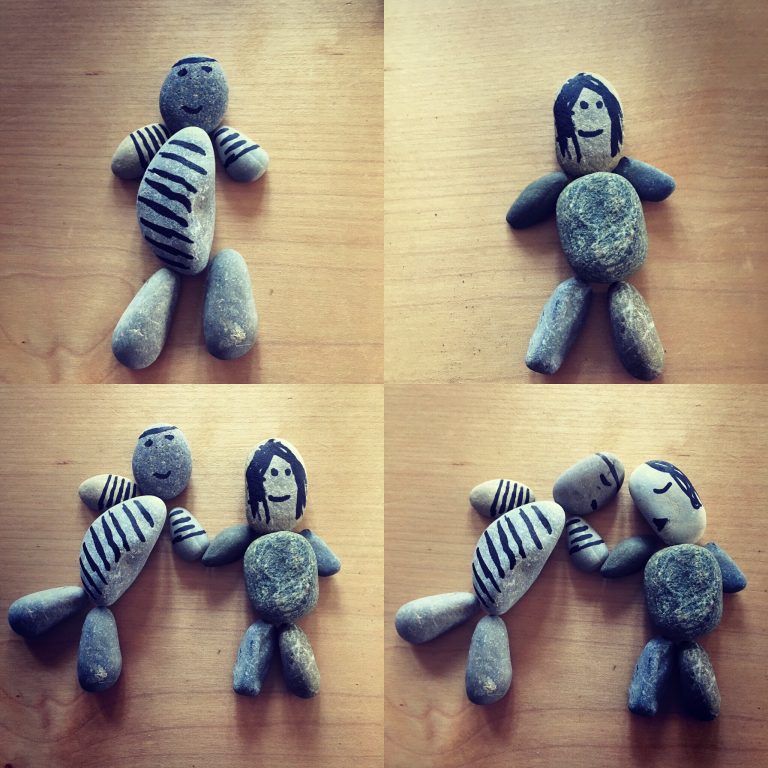Is this for me?
I work with couples and individuals internationally via zoom, in English or German, as well as in person in my practice in Uster (Züri Highlands, Switzerland).
My topic are important relationships. Love relationships.
We discover your truth, so that you can live and express it, as you strengthen or change your relationships. The overarching goal is an inspired life in integrity.
Some typical questions I help my clients with:
- My marriage feels flat. Help!
- Can I be in relationship and be fully myself?
- We had a baby. Now we have lost our spark!
- Should I stay or should I go?
- How can our love survive amongst all the stresses of raising young kids?
- Can and should we repair our relationship after an affair?
- How can we find each other again?
- Does passion have to turn to ashes over the years?
Us-Consciousness changes everything.
How we conduct ourselves changes the entire system, and with it my reality, as well as yours and ours. This has more power than the endless, exhausting efforts to change the other, which will ultimately break me or us. The key to a fulfilled partnership thus is ecological thinking: We are always connected, we always communicate with each other, and we always have the power to change our relational reality. This is us-consciousness (a term coined by Terry Real).
What happens during a session?
Every moment reflects the reality of the system. In the present moment we experience what is and what we need. We cultivate embodied awareness and detailed observation of the space between us, our connection.
Two things are certain in my practice: 1. You are in charge of what you do and say. 2. Confidentiality – What you bring to the room stays in the room. – Free choice is particularly important to me, because I like to work with the body. This happens fully dressed, with the help of alternative props and mobile furniture in my practice. Touch can shorten discussions. The body can be a shortcut to the core of what needs to happen. We meet as bodies, this is where our knowing each other starts.
We stay rooted to the present moment, even as we occasionally visit the past. Our experience as well as our memories begin in the body. We use the polarity between being and doing, between pure awareness and change, between acceptance and striving. This polarity is a room full of vitality, in which you get to explore your creativity and to mine your resources fully.

Our then 8 year old daughter wrote this love story with pebbles from our garden.
This view emerges from interpersonal neurobiology, and also from buddhism and other spiritual traditions. I use Relational Life Therapy (The Relational Life Institute), Presence-Centered Coaching (The Relationship School®), and Embodied Coaching (Embodiment Unlimited). I am continuously engaged in further learning and training, with additional certificates in conflict communication, sexuality and trauma-work (among others from National Institute for the Clinical Application of Behavioral Medicine, NICABM).
I have 20 years experience in environmental research and teaching. I combine thorough analysis with deep intuition, as well empathy with an extensive understanding of our nervous system.
Our primary attachments determine how we strive for intimacy and self-expression in later life. To describe different attachment styles, Stat Tatkin coined the terms "island", "wave" and "anchor".
Island types retreat when tension rises. They aim to regulate themselves by finding quiet and alone time. On the other hand, waves actively seek relief by going toward the other. This is when they can seem to crash into the islands. The strength of the wave is: They know about their attachment needs.
A little bit of anchor is in all of us. Especially when we are well, our needs are met and our hearts are open. This is when we can be a real team with our partner and look for solutions together. We can be optimistic, without compromising ourselves, and we use our courage and creativity for our relationship.
Interpersonal neurobiology studies the interactions between people at the nervous system level. We are constantly impacted by others, even below our conscious perception. This is what Stephen Porges calls "neuroception". Our nervous system reacts to triggers, without our immediate notice. Training our self-awareness helps us understand our reactions. We gain freedom to find response options. In the couple's context, access to such response options helps us learn co-regulation and repair.
Which words are triggering? What do we savor more than praise? How can I firmly set loving boundaries? How do I advocate for what I want, so my partner feels drawn to saying "yes!"?
We have many practical tools for this. They are easy to learn, yet difficult to use. We are creatures of habit. Beyond that, we often face deep resistance to using these tools. We discover and dissolve these resistances, and train your ability to speak honestly, lovingly and with strength. It takes courage, endurance and creativity to learn this. And, most of all: it takes practice.